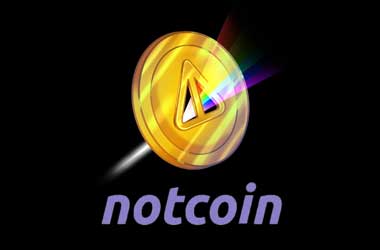 In the ever-flowing digital marketplace, trust acts as the critical dam, ensuring the secure passage of transactions for both buyers and sellers. eBay, a stalwart in the online ecosystem, has recently revealed its blueprint to reinforce this trust through cutting-edge blockchain technology. This strategic move aims to elevate user authentication and curb fraud, signifying a significant shift toward establishing a transparent and decentralized platform for its extensive user base. The company’s patent filing, titled ‘blockchain-based authentication and authorization,’ signifies not just a nod to innovation but a leap into the future of e-commerce security.
In the ever-flowing digital marketplace, trust acts as the critical dam, ensuring the secure passage of transactions for both buyers and sellers. eBay, a stalwart in the online ecosystem, has recently revealed its blueprint to reinforce this trust through cutting-edge blockchain technology. This strategic move aims to elevate user authentication and curb fraud, signifying a significant shift toward establishing a transparent and decentralized platform for its extensive user base. The company’s patent filing, titled ‘blockchain-based authentication and authorization,’ signifies not just a nod to innovation but a leap into the future of e-commerce security.
Blockchain-Based User Authentication: A Digital Handshake:
eBay’s proposed system introduces a groundbreaking approach to user authentication, leveraging blockchain technology. The platform envisions authenticating sellers and authorizing transactions based on the ownership or control of a specific blockchain address accompanied by a private key. This method acts as a digital handshake, ensuring the identity of the parties involved. Transactions could also include stipulations based on the user’s blockchain-recorded transaction history, such as purchase history and reputational score. This introduces a merit-based system, rewarding credibility and penalizing deceit.
Addressing Fraud and Counterfeits:
eBay’s foray into blockchain is driven, in part, by its determination to rid the platform of fraud and counterfeits that have marred its reputation. The company’s commitment to this technology follows a $59 million settlement with the US Department of Justice over allegations related to the sale of pill presses and encapsulating machines. This settlement mandated eBay to implement stricter monitoring processes, emphasizing the urgency for a robust solution against fraudulent activities. eBay’s interest in blockchain extends beyond this patent, with previous engagements in blockchain-based logistics technology and investments in the NFT marketplace KnownOrigin, signaling a broader vision for integrating blockchain into its operations.
Navigating Challenges in the Blockchain Landscape:
While eBay’s blockchain initiative shows promise, challenges lie ahead. The company recently scaled back its blockchain initiatives, including a 30% reduction in KnownOrigin’s staff, amidst broader industry challenges. This decision underscores the volatile nature of the blockchain and cryptocurrency sectors, characterized by significant fluctuations. Despite these hurdles, eBay’s exploration of blockchain technology for user authentication and fraud prevention demonstrates a noteworthy commitment to innovation and security. By combining the transparent nature of blockchain with the dynamic requirements of the digital marketplace, eBay not only addresses past criticisms but also charts a course toward a more secure and trustworthy platform.
Conclusion:
eBay’s venture into blockchain technology marks a pivotal moment in the evolution of e-commerce security. As the company navigates the complexities of the blockchain landscape, its commitment to leveraging this innovative solution for user authentication and fraud prevention showcases a dedication to staying at the forefront of technological advancements. In doing so, eBay not only aims to enhance security but also redefines trust in the digital marketplace, setting a precedent for the future of e-commerce.








